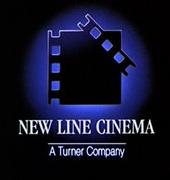Who's Afraid of Best Actress 1966?
 Both polls for the 1997 Best Actress race have been landslides on behalf of my own pick, Helena Bonham Carter. Which is lovely, if a mite unsuspenseful—and I'm guessing that outcome won't change too much in the polling for my latest group, the leading ladies of 1966. Liz Taylor, absent but at least out of surgery on Oscar night, had nothing to worry about in that year's race and I'm confident that she won't here, either. Feel free to prove me wrong—I know there are staunch fans of A Man and a Woman fans out there—but she's superb in Woolf, and though the other four films were all popular hits with major prizes under their belts, none of them have the enduring visibility of Taylor's vehicle.
Both polls for the 1997 Best Actress race have been landslides on behalf of my own pick, Helena Bonham Carter. Which is lovely, if a mite unsuspenseful—and I'm guessing that outcome won't change too much in the polling for my latest group, the leading ladies of 1966. Liz Taylor, absent but at least out of surgery on Oscar night, had nothing to worry about in that year's race and I'm confident that she won't here, either. Feel free to prove me wrong—I know there are staunch fans of A Man and a Woman fans out there—but she's superb in Woolf, and though the other four films were all popular hits with major prizes under their belts, none of them have the enduring visibility of Taylor's vehicle.To keep things interesting, then, I've added a third question to this round of polling, which will become a fixture whenever I delve into a long-ago year where I haven't seen as many films or performances as I have from the recent vintages. Decide my fate, reader. Chart my course. Be the wind beneath my actress-loving wings. What performance from Oscar's eligibility field would you support as my next pit-stop on the 1966 trail? Hana Brejchová's in a Czech New Wave hit and Best Foreign-Language Film nominee (and thus a generic sibling of Ida Kaminská's film and an also-ran to A Man and a Woman's Oscar win)? 1965 nominee Elizabeth Hartman in very early Coppola? Fellini and Herzog favorite Claudia Cardinale in the American west? Late starlet-period Jane Fonda? A Criterion-certified masterpiece by Carl-Theodor Dreyer or late-arriving Chabrol, or outsider icon Tuesday Weld in a proto-Heathers, or Godard muse and wife Anna Karina, or Lauren Bacall scoping out Paul Newman? The cross-cultural stars of a very early Merchant-Ivory? Maybe you prefer Frankenheimer weirdness or Tony Richardson hit-and-missness, or you feel like putting me through Shelley Winters or the stunted-camera time-capsule The Group, with its eight female leads? Which ever way you're leaning, read up on Oscar's own priority list and then let your voice be heard! And if your implicit vote is "other," arrest me with your alternative options in the Comments. (N.B. Since I've promised to provide these direction-seeking polls in all the years where I am under-versed, I've put one up for 1932, also.)
(By the way, speaking of big female ensembles, a quick plug for the 1966 John Ford doozy 7 Women, especially for you Paradise Road fans who spoke up in the '97 discussion. 7 Women, Ford's last film, presents a palpably perverse Christian mission that now has a Mongol warrior to worry about, all of which gives prim autocrat Margaret Leighton some fascinating context for her trembling-neurotic routine. Sue Lyon finally gets to play the good girl instead of the fantasy or the sexpot, and Anne Bancroft gets her Johnny Guitar on as a butch expatriate doctor willing to go a long, long way—and I don't just mean to China—for the good of civilization. And she's a Ford character, so she's not even sure she likes civilization! Pretty non-stop intensity for 87 minutes, give or take its lapses in judgment and cultural sensitivity, and a literally killer ending to boot.)
Labels: 1960s, Anne Bancroft, Best Actress, Elizabeth Taylor
 Nick's Flick Picks: The Blog
Nick's Flick Picks: The Blog




 Am I the last to know that
Am I the last to know that 













